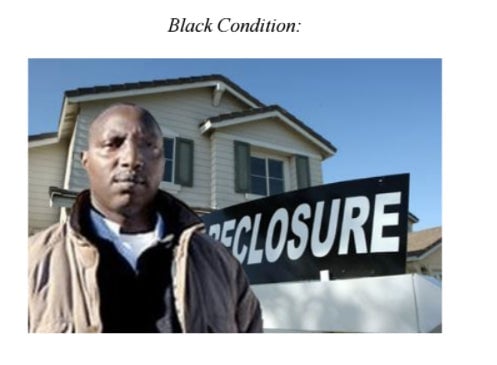A new study shows Trump fans can be easily coaxed into being more racist
It’s easy to turn Trump supporters against government assistance programs—just show them a picture of a black man.


It’s easy to turn Trump supporters against government assistance programs—just show them a picture of a black man.
That’s the conclusion of a new study, which suggests that white resentment is a key driving force for supporting Donald Trump. The study, soon to be published in Research & Politics, found that white Trump supporters were more likely to back a federal mortgage aid program if they were first exposed to an image of a white man. However, when they were shown an image of a black man, white Trump supporters weren’t only less likely to support the aid program, but were angrier about the policy, and more likely to blame potential beneficiaries of the program for their own predicament.
Researchers from New York’s Colgate University and the University of Minnesota surveyed over 700 white people on their support for a federal mortgage aid program. These white respondents were then shown details of the housing program with a cover photo of either a white man or a black man. The introductory text read: “Recently there have been proposals to help people who are struggling with their mortgages and may lose their homes.” The participants were then asked to indicate their support for the mortgage relief program, whether the program made them angry, and the extent they blamed potential beneficiaries of the program for their own plight.


The findings were particularly revealing. Among white respondents who had favorable views of Trump, the image of the black man was linked to higher opposition to the program, anger at such assistance, and the propensity to blame beneficiaries for their situation. However, with white respondents with an unfavorable view of Trump, the image of the black man had the opposite effect. These white respondents were more likely to support mortgage assistance, less angry about the program, and had less of a tendency to blame beneficiaries for their predicament when shown the image of the black man.
Researchers were keen to stress that white Trump supporters in particular responded more to racial cues. While factors like ideology, income, and age did not correlate with responsiveness to racial cues, support for Trump did. This was not just because of strong affiliation with any candidate, but appeared to be specific to Trump. Support for Hillary Clinton, for instance, was also not linked to responsiveness to racial cues. “Importantly, these effects were exclusive to attitudes toward Trump: effects of the racial cue did not differ according to feelings about Hillary Clinton,” researchers note in the paper. “Thus, Trump supporters and opponents respond in fundamentally different ways to racial cues in the environment.”
The findings echo a phenomenon highlighted by previous studies: White Americans are skeptical of government programs that would help them if they believe the program is disproportionately helping minorities. This suggests a bias about Black Americans abusing and overusing government welfare programs. Last year, a survey by YouGov showed white respondents were far more likely to say that black Americans were the biggest recipients of welfare (they’re not, working-class whites are the biggest beneficiaries of the government safety net).
This kind of white resentment (paywall) is often blamed for putting Donald Trump in the White House, and his continued high approval rating among white voters.